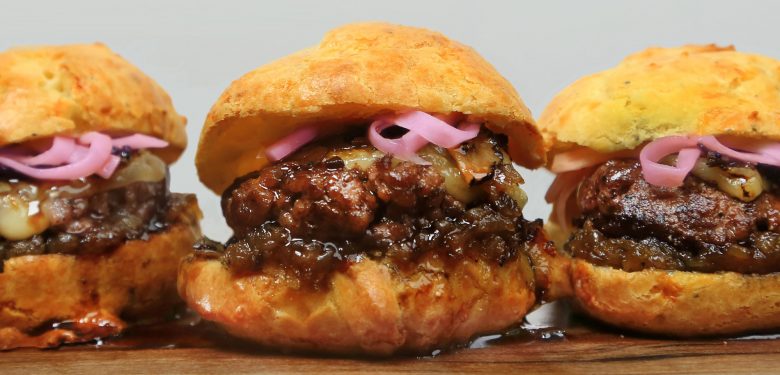
The sound of your food contributes to how much you enjoy it
Aurality is often a forgotten factor when we think about how we experience food.
In an era of Instagram and Snapchat we tend to rely most on aesthetics, alongside a brief description of how the food smelled and tasted, to communicate our eating experiences. But ain’t nobody got time for a play by play Urbanspoon analysis of a croissant.
And well, science has proven that the way food sounds actually plays a huge role in how much we enjoy it. And I’m not talking about the extravagant Heston Blumenthal seascapes from headphones in a shell.
Think about what people love most about food: the crisp sound of biting into some freshly cooked bacon, the fizz that escapes after cracking open a carbonated bevvy, the sizzle of food that’s fresh off the hotplate. When you think about it, we depend a lot on sound when we’re eating, often to translate what we cannot see; from texture, to ripeness, to how fresh food is (whether that be how long it’s been out of the deep-fryer and become soggy, or if its heartbeat is still audible on the plate).
Published in Flavour journal as part of the Science of Taste series, research has shown a person’s eating experience is impacted significantly by the sounds that accompany it, changing our multi-sensory perception of flavour.
It’s been labelled as “sonic stimulation”, and it’s actually a huge determining factor of what draws us to certain foods. The researcher behind the study, Charles Spence, believes sound is a vital sense when determining the quality of food.
“Our brains are all the time trying to pick up correlations in the environment,” he says, and that people use every sense we have to determine our perception. Like everything else, it all comes back to evolution and our desire to survive. We subconsciously use sound to determine what we should or should not be eating.
For example, we now find that cracking sound when chomping down on a piece of food synonymous with freshness and quality. This explains why food ads featuri exaggerated cracking and crunching noises from everything from chocolate to hamburgers, to fruit.
Heston Blumenthal’s Fat Duck menu begins with the quote, “Eating is the only thing we do that involves all the senses. I don’t think that we realize just how much influence the senses actually have on the way that we process information from mouth to brain.”
The appeal of popping candy has now been explained.
Words by Nu Tran
